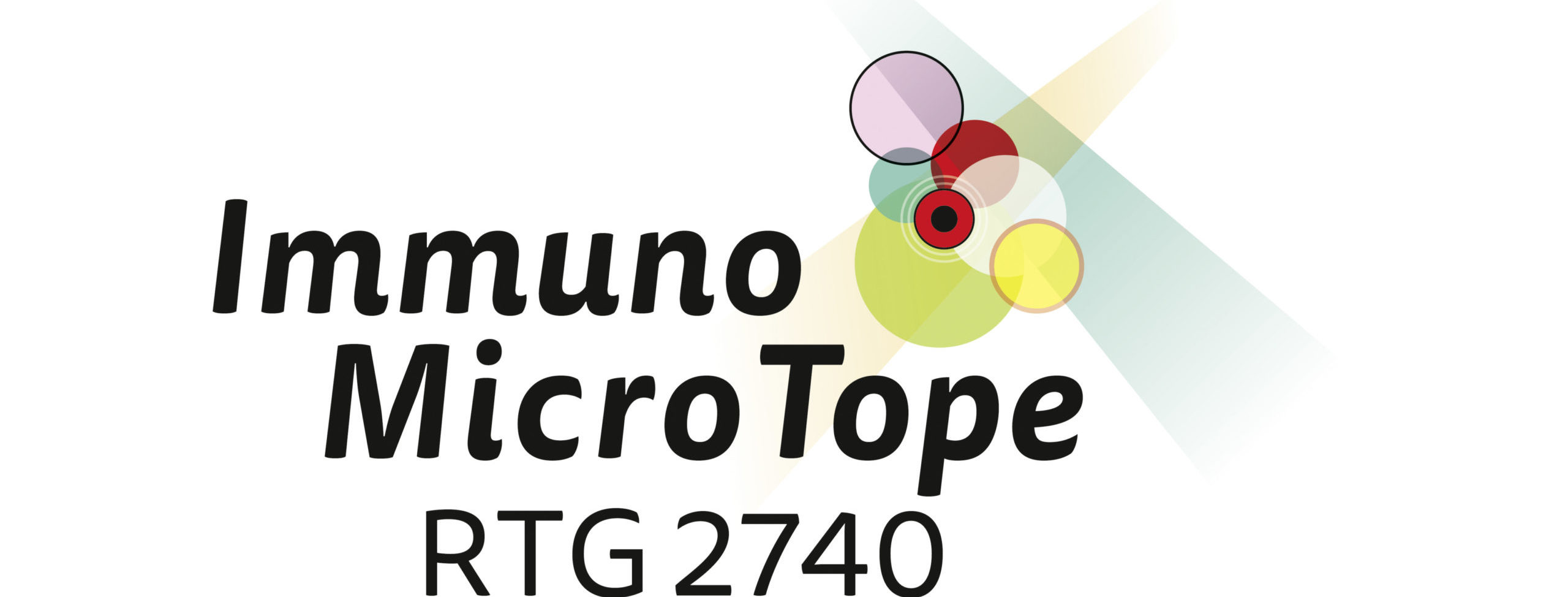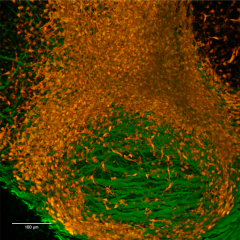Research
Focus of research
To overcome infections with extra- or intracellular pathogens requires recruitment and activation of B and/or T lymphocytes and of phagocytes (granulocytes, macrophages, dendritic cells) that express antimicrobial effector molecules. In vitro studies applying standard culture conditions as well as the use of transgenic mouse models have yielded fundamental insights into the cellular and humoral immune mechanisms underlying the control of infections. In recent years, it became clear that the tissue microenviroment, milieu factors and the cellular metabolism have a tremendous impact on the development and general function of immune cells. However, it is still poorly understood, to which extent these parameters also govern the antimicrobial defense and/or the evasion of microbial pathogens.
The scientific basis of the proposed research training group (RTG) is the hypothesis that the anti-infectious immune response and its evasion by microorganisms are strongly influenced by the micromilieu components and metabolic products at the site of infection, which we collectively term “immunomicrotope”. Consequently, the overarching goal of our RTG proposal is to train a new generation of scientists, who in their doctoral thesis focus on the characterization of host- or microbe-derived factors that shape the microenvironment in the infected tissue and thereby regulate the function of immune cells and/or the pathogenicity and survival of non-viral infectious agents (bacteria, protozoa, fungi, helminths). The two research areas A: tissue microenvironment and milieu factors; B: metabolism of host immune cells and pathogens are closely related and interconnected. They fit seamlessly to the research focus “Immunology and Infectious Diseases” at FAU and build on established infectious disease models, the availability of key technologies for in vitro and in vivo imaging, metabolic and genetic analyses, and on an excellent infrastructure and scientific environment.



